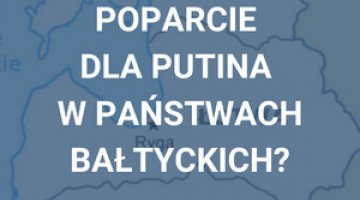A new phase of China's pressure on Lithuania: weaponisation of European value chains
In the latest phase of now months-long diplomatic conflict between Beijing and Vilnius, China has developed a new set of economic coercion instruments. In recent weeks, Lithuania was temporarily removed from the PRC customs clearance systems, causing significant difficulties to bilateral trade. Earlier this year, Beijing has halted part of the regular China-Lithuania freight train connections. It also closed credit lines extended for Lithuanian companies, introduced various export restrictions (with products worth 10 million euros halted at the border), and blocked imports of existing orders from China. The PRC is also putting pressure on multinational corporations (including European companies), pushing them to reduce investments in Lithuania and stop sourcing supplies from local companies, threatening with retaliation against their operations on the Chinese market. According to the Federation of German Industries (BDI), German entities face difficulties bringing goods from China to Lithuania and vice versa. Informal trade sanctions also extend to German exports using Lithuanian components. This situation has reportedly affected Siemens, Bosch, Continental, as well as French and American entities, among others. Continental, a global supplier of tires and car parts, is the largest investor in Lithuania's manufacturing sector (with a total investment of around EUR 190 million). Lithuanian textile companies are receiving warnings from partners in France, Germany, and the Netherlands about the possibility of withdrawal from cooperation. The BDI described the Chinese action as a "trade boycott" with EU-wide consequences that are "not to be tolerated". However, it also criticised Lithuania for its policy on Taiwan not being coordinated with EU policy. The German government has so far not commented on the issue.
At Vilnius request, the PRC's economic coercion on Lithuania was addressed in a joint communiqué on December 8th by EC Vice-President Valdis Dombrovskis and EU High Representative Josep Borrell. The EU has made a formal inquiry to the Chinese authorities about the blockades imposed on Lithuanian companies to determine whether the retaliations are of "systemic in nature". EC presented the dispute as a potential field for applying the so-called anti-coercion instrument (ACI), allowing counter-sanctions to be imposed on third countries that exert economic pressure on the EU and the Member States. On December 9th, the Chinese customs administration refused to respond to the Commission and the EC announced that it would take the matter to a higher political level. Meanwhile, articles in the Chinese government press denied the allegations and at the same time accused the EU of undermining the 'One China principle. Parallel to the economic retaliation, the PRC intensified political pressure on Lithuania. It took further steps to formally downgrade Lithuania's diplomatic mission in Beijing (to the level of chargé d'affaires representation), demanding that Lithuanian diplomats return their accreditation documents. In response, Lithuania organised the urgent return of the mission's staff with their families on December 15th and announced that the embassy would operate remotely for the time being.
Commentary
- The Lithuanian-Chinese conflict stems from a series of moves by Vilnius that began in the spring of 2021: its withdrawal from the 17+1 initiative, recognition of the persecution of the Uighur minority in China as genocide, and most importantly, the announcement of the establishment of Taiwanese representation in Lithuania and Lithuanian representation in Taiwan. For Vilnius, this policy direction is an important element in a broader push to strengthen its relations with Washington. The United States has offered Lithuania support in resisting China's coercive actions and provided it with a $600 million export credit line. Lithuania’s bilateral contacts with the US visibly intensified in recent months, strengthening Lithuania's sense of security in the face of rising threats from Russia and Belarus. Vilnius has also announced that it will exclude Chinese technology companies from the Lithuanian market for security reasons, especially in critical infrastructure. Lithuania is also trying to turn closer relations with Taipei into deeper economic cooperation with Taiwan, including in the area of semiconductors. Moreover, it wants to increase its influence on the EU policy towards the PRC, e.g., by repeatedly proclaiming the need to replace the 17+1 format with a common EU policy towards China (27+1).
- Beijing increases economic and diplomatic pressure on Vilnius, trying to make an example out of Lithuania in front of other EU member states. The unprecedented use of the word "Taiwan" in the name of the Taiwanese mission in Vilnius was considered by Beijing as a change in the global status quo regarding diplomatic relations with the island's authorities, undermining China's territorial integrity. In the PRC's view, withdrawal from the 17+1 could encourage other countries to follow suit, undermining the foundations of China's policy towards Central and Eastern Europe. However, the main difficulty for Beijing in recent months has been to exert real economic pressure on the government in Vilnius, given the low level of bilateral business relations. Chinese media thus called for, among other things, the imposition of joint economic sanctions on Lithuania by the PRC, Russia, and Belarus. Beijing eventually decided to internationalise the dispute, shifting it to the EU level by weaponising European value chains. It is also stepping up its propaganda attacks on Lithuania, accusing it of torture and human rights violations against migrants on the border with Belarus, as well as past crimes against the Polish and Jewish minorities.
- Diplomatic conflict’s potential impact on Lithuania's position in global supply chains is causing serious concern in Vilnius. The previous informal trade sanctions that focused solely on Lithuanian entities have not been considered severe and have not changed the authorities' position in Vilnius. The threat of losing international contracts due to reports that some companies are considering moving production to plants in other countries is serious. The international brand of Lithuania as a safe destination for investment, which has been built up over the past decades, could suffer significantly. The weaponisation of supply chains built by multinational corporations is a relative novelty for Beijing, which has rarely used such tools, focusing instead on informal trade restrictions. However, sales to China account for only about 1% of Lithuania's total exports. Beijing's new, much more aggressive tactics are also aimed at intimidating other EU countries, mainly from Central Europe, where the economic cooperation model with China is similar to Lithuania's (low direct sales to China with significant indirect exports through the supply chains of Western European companies).
- As the dispute enters a new phase, the Lithuanian authorities' assurances to local constituencies that the Chinese retaliation will not significantly impact the economy are no longer valid. The efforts made by Vilnius to obtain support from the European Commission are to prove that the authorities are active in protecting the interests of Lithuanian business, which is engaged in cooperation with the PRC. Local business circles are putting increasing pressure on the government, arguing that they were encouraged to start co-operating with Chinese partners by the Lithuanian authorities several years ago when the 17+1 was established. The growing discord in Lithuania between the political goals of the ruling right-wing party and the interests of business and consumers is stimulating internal criticism. It is also used in the domestic political struggle – primarily between the government and the president. The head of state has distanced himself from the government's support for Taiwan, describing these actions as ill-considered and uncoordinated.
- The European Commission's reaction is the first example of tangible political support from senior EU officials for Lithuania in its conflict with China. The EC's stance shifted the dispute from bilateral relations to the European level and it will influence the overall dynamics of EU–China relations. Pointing at the China-Lithuania dispute as a case for potential application of the Anti-Coercion Instrument (ACI) brings a promise of further political engagement of the EC in the conflict. However, the EU institutions currently have no immediate legal tools to defend Vilnius' interests. The ACI will be implemented only after the EU Council reviews the EC proposal, and a possible dispute in the WTO could last for years. In such a situation, the burden of supporting Lithuania will fall on the EU capitals. This involves especially Germany, whose multinational companies were targeted by PRC to the most significant degree. Berlin’s reaction to the crisis may determine the policy of the new German government towards China. High-profile support of Lithuania and the affected German companies will mean a major shift in relations with Beijing and a departure from Angela Merkel's policy based on dialogue. The lack of proper reaction (or criticism of Vilnius's policy) will send a strong political message to China that pressure on German corporations is an effective tool for influencing the decisions of both Berlin and other European states. The case of Continental is becoming a crucial test – it would take years to move production out of Lithuania, and bowing to Chinese pressure would mean losses for the German company and difficulties related to further disruptions in the automotive supply chains.
- As the economic repercussions of the conflict are increasingly felt by Lithuania, its future dynamics will also depend on the scale of support from the US. Officially, Washington has still not reacted to the latest round of Chinese sanctions, despite the reports about Beijing's pressure on US companies co-operating with Lithuanian partners (e.g., laser manufacturer Thermo Fisher Scientific). US actions and potential counter-measures will have a massive impact on the future use of weaponising global value chains during diplomatic conflicts by the PRC. In turn, US support for Lithuania will be crucial for the future of US-backed rapprochement between other EU and Taiwan that can already be seen in Czech Republic or Slovakia.





